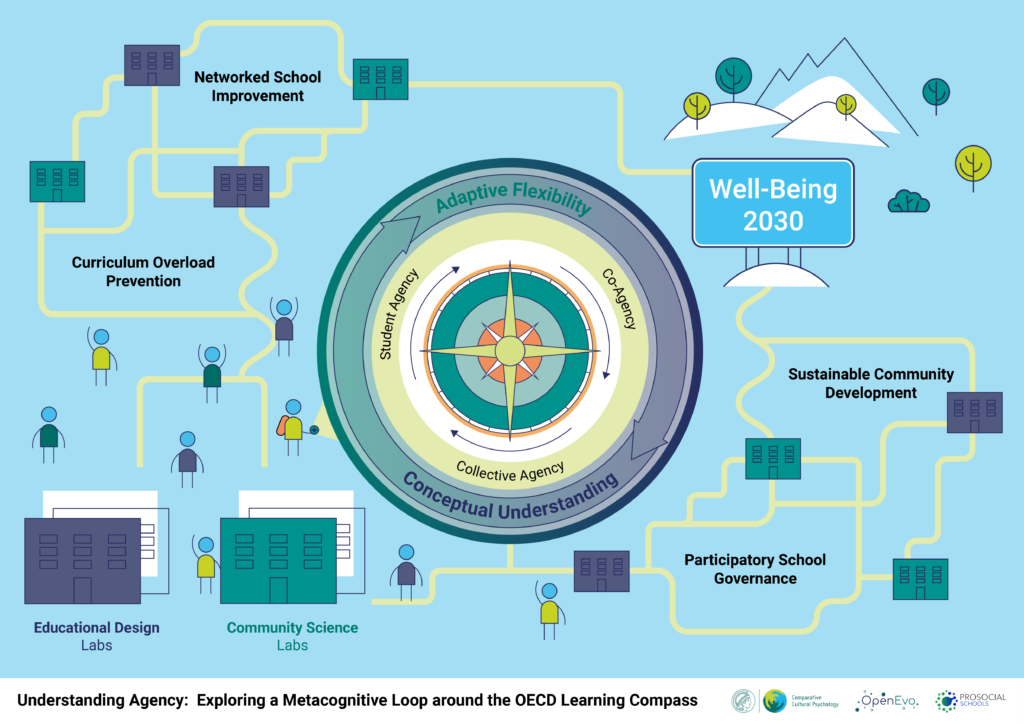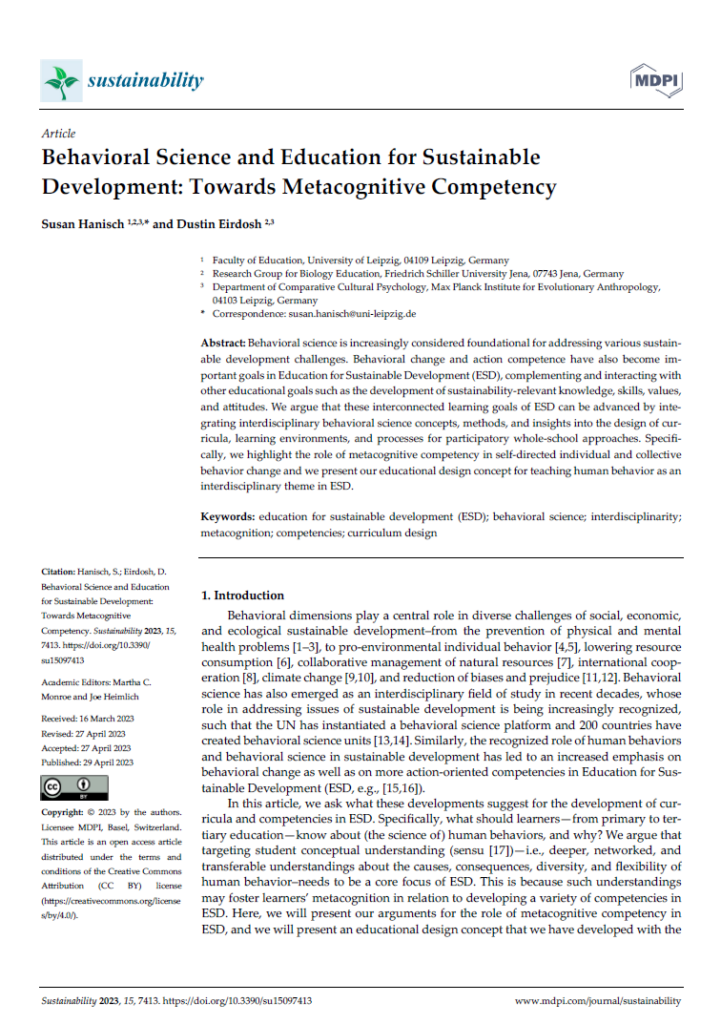Our Theory of
School Improvement
Making schools better for everyone involved is a difficult task that takes many minds and perspectives working together to critically explore the full potential of possible directions a school community could evolve towards.
Our Theory of School Improvement provides a roadmap to collaborative change.
Our Theory of School Improvement is highly general, in that it may apply widely across social, economic, cultural, and other contextual dimensions of schools around the world. Yet in spite of this generality, it also provides a clear direction, through the twin aims of understanding human behavior and engaging students in school improvement and sustainable development processes.
It is up to local school communities and collaborators to better understand how these broad improvement pathways can be optimized in local settings.
By focusing on these two general classes of educational innovation spaces, schools around the world can contribute to the cultural evolution of a more conceptually coherent and socially valued general education curriculum.
Our Theory of School Improvement serves to organize our Learning Goals, and has been developed in paralell with our Educational Design Concept. All of which are operationalized within our Design-Based Research Model.
Read our open access article in the journal Sustainability describing our Theory of School Improvement in more depth.:




